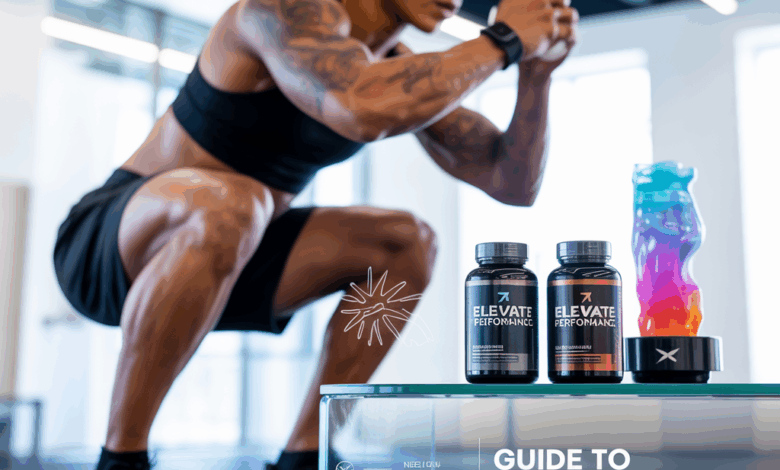Guide Pre Workout Supplements: What to Take, When, and Why

Ever stared at a jar of neon powder in the gym locker room and wondered, “Do I really need this to crush today’s session?” If you’ve felt that mix of curiosity and confusion, you’re not alone. This guide pre workout supplements will walk you through the science, the safe choices, and the real-world tips so you can pick the right pre-workout for your goals — without the guesswork.
Why people use pre-workout supplements
Pre-workout supplements promise more energy, sharper focus, better endurance, and improved strength output. For many lifters, runners, and weekend warriors, they bridge the gap between feeling sluggish and having a productive workout. But not all pre-workouts are created equal — ingredients, timing, and your individual sensitivity matter.
Key ingredients explained: what actually works
Understanding common pre-workout ingredients helps you pick a product that aligns with your needs. Here’s a breakdown of evidence-backed components:
- Caffeine — Increases alertness and reduces perceived exertion. Typical effective dose: 100–300 mg.
- Beta-alanine — Helps buffer muscle acidity for high-rep or interval work; can cause harmless tingling (paresthesia).
- Citrulline (or citrulline malate) — Supports nitric oxide production for improved blood flow and endurance.
- Creatine — Not always in pre-workouts, but proven to increase strength and power when taken consistently.
- BCAAs / EAAs — May help with recovery and prevent muscle breakdown in fasted training; whole-protein intake is often better.
- Electrolytes — Important for hydration and performance during long or hot workouts.
How to choose the best pre workout supplements for energy and focus
Use this quick checklist before buying:
- Check the caffeine amount — know your tolerance and total daily intake from all sources.
- Look for transparent labeling — avoid proprietary blends that hide doses.
- Match ingredients to your workout type (see workout variations below).
- Consider stimulant-free options if you train late or are sensitive to caffeine.
- Start with half a serving to assess tolerance.
Stimulant-free and natural pre-workout alternatives
If caffeine isn’t your friend, look for caffeine-free blends or natural options like beetroot juice (nitrate-rich), green tea extract (lower caffeine doses), or adaptogens for stress resilience. These can improve endurance and vascular function without jitters.
When to take pre-workout: timing and dosing
Timing matters. For most powders and caffeine-containing formulas, take them 20–45 minutes before exercise. Citrulline and beta-alanine may need chronic use or slightly longer timing to reach peak benefits. For creatine, consider daily supplementation rather than pre-workout-only dosing.
Workout variations and recommended pre-workout approaches
Tailor your supplement strategy to the session:
- Strength / Power (heavy lifting): Moderate-to-high caffeine, creatine support, and citrulline for pumps. Short, intense sessions benefit from stimulant-based products.
- Hypertrophy (muscle building): Beta-alanine and citrulline support volume work. Focus on carbs for energy if training long.
- HIIT or interval training: Caffeine for intensity, electrolytes for repeated sprints, and beta-alanine for buffering.
- Endurance (long runs/cycling): Lower caffeine if you’re sensitive, add electrolytes and easily digestible carbs; beetroot/nitrate supplements can help aerobic performance.
- Fasted workouts: Consider BCAAs or a small carb snack to preserve performance and reduce muscle breakdown.
Practical fitness tips and lifestyle habits to boost pre-workout effectiveness
Supplements enhance, but don’t replace, fundamentals. Implement these daily habits:
- Prioritize 7–9 hours of sleep — recovery drives performance more than any powder.
- Stay hydrated throughout the day; start workouts well-hydrated.
- Fuel smartly: 20–40 grams of carbs 30–60 minutes before intense sessions improves output.
- Cycle stimulant use to prevent tolerance (e.g., use pre-workout 4–5 days per week, take breaks or use lower-caffeine options on other days).
- Track results — note energy, reps, weights, and feelings after trying a new supplement for 2–4 weeks.
Safety considerations and who should avoid pre-workout supplements
Most healthy adults can use pre-workouts safely if they follow recommended doses, but be cautious if you:
- Have cardiovascular issues, high blood pressure, or are pregnant/breastfeeding — consult a healthcare provider.
- Take medications that interact with stimulants or herbal extracts.
- Experience anxiety, insomnia, or digestive upset after caffeine.
Always read labels, follow dosing instructions, and prioritize products with third-party testing when possible.
Real-world example: choosing the right pre-workout
Meet Sarah, a busy nurse who trains at 5 a.m. She needs clean energy without a crash. Sarah opts for a low-caffeine pre-workout with citrulline and electrolytes, takes it 30 minutes before her session, and pairs it with a small banana for carbs. She avoids high-caffeine products on shift days. On weekends when she lifts heavy, she uses a stronger stimulant-based formula but cycles it to weekends only to manage tolerance.
Guide Pre Workout Supplements: Quick starter plan
New to pre-workouts? Try this 4-week plan:
- Week 1: Start with half a serving of a low-to-moderate caffeine powder 30 minutes before workouts.
- Weeks 2–3: Move to a full serving if tolerated. Track strength and perceived exertion.
- Week 4: Take a break for 3–5 days or switch to a stimulant-free option to reduce tolerance.
Combine this with consistent training programs from our workout routines and fueling tips in our nutrition guides.
Frequently Asked Questions
Most are safe for healthy adults when used as directed. Check ingredients, avoid excessive stimulant doses, and consult your doctor if you have medical conditions or take medications.
Yes — especially to caffeine. Cycling usage, lowering doses, or choosing stimulant-free formulas can help maintain effectiveness.
No. Proper training, nutrition, sleep, and consistency are the main drivers of progress. Pre-workouts can help optimize certain sessions, but they’re not required for gains.
Conclusion: Start smart with this guide pre workout supplements
Pre-workout supplements can be a useful tool when chosen and used intelligently. Focus on reputable ingredients, proper timing, and the fundamentals of sleep, hydration, and nutrition. Start small, track how you feel, and use stimulant cycles to avoid tolerance. Ready to make your workouts more consistent and energized? Try the starter plan above, explore our wellness tips, and commit to 4 weeks — then reassess and adjust.
Call to action: Pick one of the strategies above and test it for two weeks. Share your experience and goals to get personalized suggestions — your next better workout is one smart choice away.





